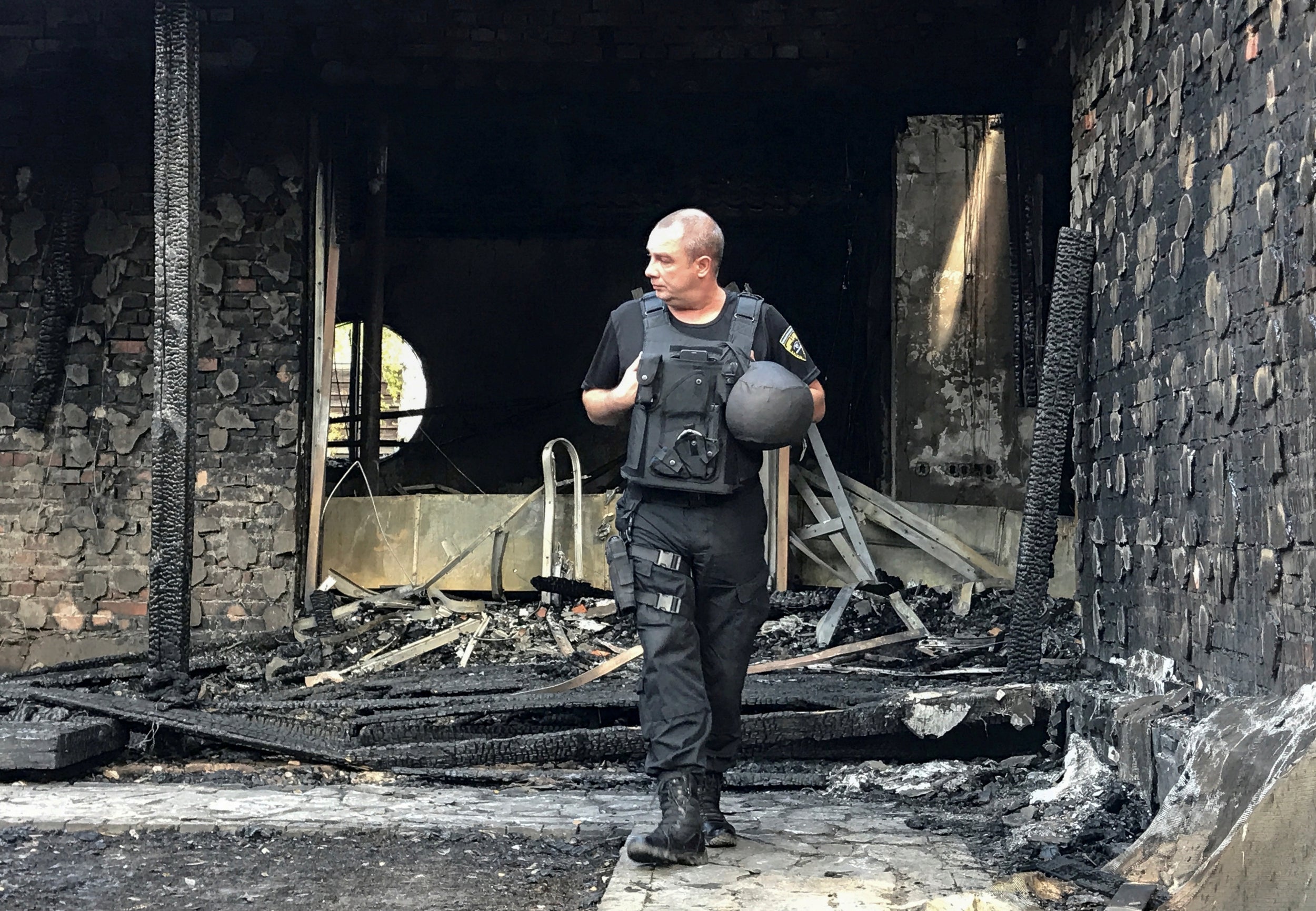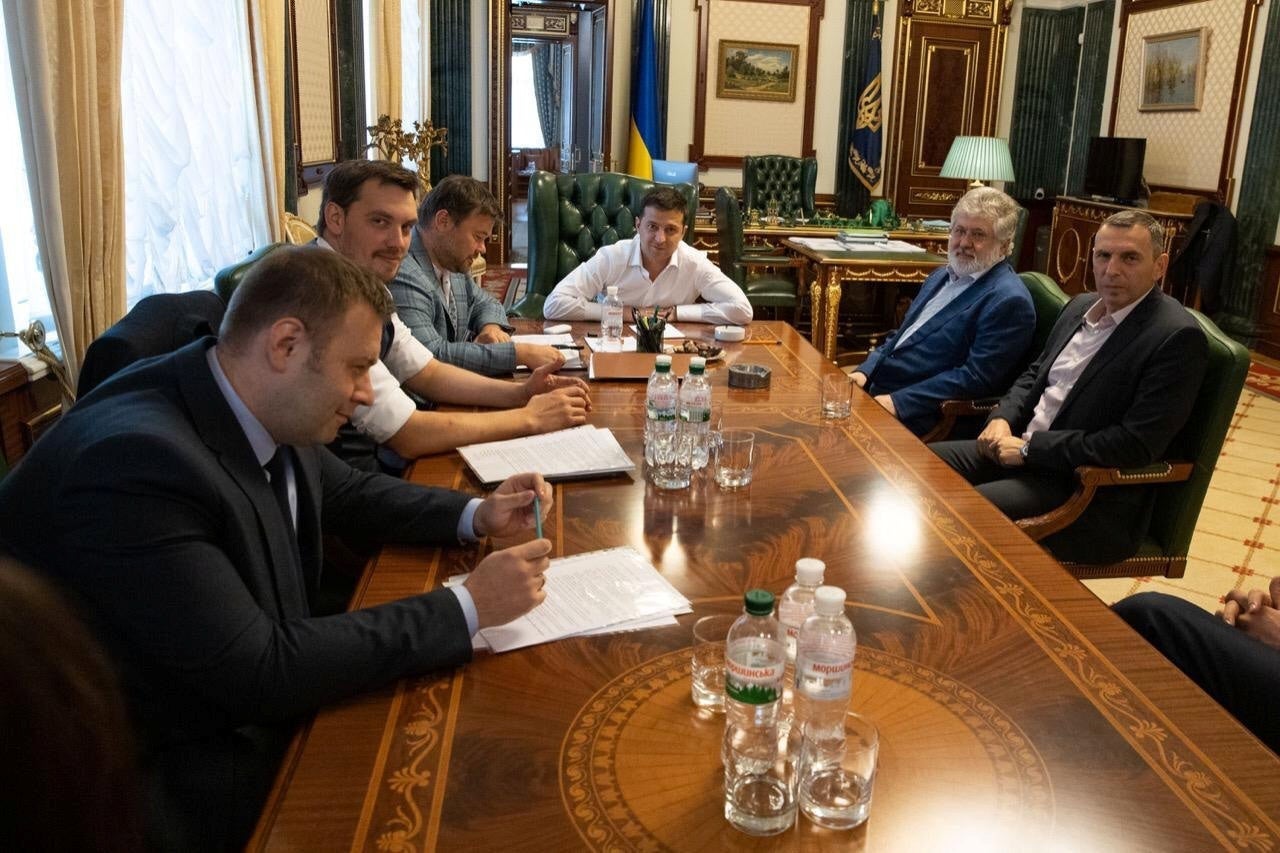'Why do they need to destroy me?': Ukraine's crusading ex-central banker speaks out after home torched
Valeriya Gontareva implicates oligarch known for close ties to Ukraine's new president Volodymr Zelensky
The home of Ukraine’s former central banker was destroyed on Tuesday morning in an apparent arson attack that tore through the suburban Kiev structure.
It was the latest in a series of violent reprisals against Valeria Gontareva, a reformist bureaucrat who headed Ukraine’s National Bank between 2014-2017.
In August, Ms Gontareva was hospitalised following a mysterious hit and run incident near the London School of Economics, where she now works. Two weeks ago, unidentified attackers torched a car registered to her daughter-in-law in Kiev.
On all occasions, Ms Gontareva has implicated controversial tycoon Ihor Kolomoisky in the attacks.
Ms Kolomoisky, who was Ukraine’s second-richest man before Ms Gontareva intervened to nationalise his PrivatBank in 2016, has been forthright in menacing, public threats against the former public official. But he has also denied involvement in any of the attacks.
The Tuesday morning incident was witnessed only by a security guard, who saw a Molotov cocktail being thrown onto the roof. The guard called Ms Gontareva, the police, and the fire service. By the time the fire hoses arrived, the house was already reduced to cinders.
Just three days earlier, Ms Gontareva’s youngest son was sleeping in the room that the petrol bomb entered the house.
“I don’t understand it,” an audibly distressed Ms Gontareva told The Independent by telephone. “Why are they assaulting me? Why are they burning down my house? Why are they out to destroy me?”

Over her three years in office, Ms Gontareva forged a reputation as a steely central banker.
She was lauded for her calm handling of an early 2015 foreign exchange crisis and her reform of Ukraine’s unwieldy financial sector. She also took on the unenviable task of shutting down dozens of often criminalised banks; and, in 2016, of nationalising Mr Kolomoisky’s financial behemoth.
At the time, PrivatBank controlled 33 per cent of all private deposits in Ukraine. It was a bank that was too big to fail; its collapse would likely have precipitated a financial meltdown countrywide. But in its investigations, Ms Gontareva’s central bank had discovered a ticking time-bomb of insider lending, embezzlement and a multi-billion dollar black hole.
The bank, living in a different reality to its balance sheets, needed a government bail-out of $5.5 billion.
Following an enforced multibillion-dollar intervention, the Ukrainian government sued Mr Kolomoisky and his business partner Gennady Bogolyubov. But the two fought back with hundreds of legal proceedings. In April of this year, one was successful, when a local court dramatically ruled the nationalisation of PrivatBank to be illegal.
The judgment came a few days before the election of Volodymyr Zelensky, with whom Mr Kolomoisky enjoys two decades of close business relations. The tycoon also returned to Ukraine around this time, having exiled himself to Israel.
In an interview with the Financial Times published on Tuesday, Oleksiy Honcharuk, Ukraine’s new prime minister, revealed that the new government was now working on a “compromise” with PrivatBank’s former shareholders. Ukraine needed to concentrate on growth, he said, rather than “spending … resources destroying one another”
But any move to overturn the 2016 decision will be met with consternation by international lenders, who see the PrivatBank nationalisation as a sign of Ukraine turning the corner on corruption.
It is also likely to put a question mark over the anti-corruption intentions of President Zelensky, who has failed to put real distance between his administration and its most scandalous backer.
On Tuesday, Mr Zelenksy's office denounced the arson attack and said it represented a "brutal crime." But the president's detractors have already seized on the developments as an example of a new government “enacting revenge” on its political opponents.

In a statement issued on Tuesday, European Solidarity, the political bloc of former president Petro Poroshenko said it “did not exclude [there being] “people among the authorities who have motives for [avenging] Gontareva."
“The burning of her children's vehicle went with no public reaction from the authorities,” the statement said.
Ms Gontareva, who made little attempt to differentiate between the Zelensky administration and the “crazed” Mr Kolomoisky, said that she could not understand why “they” had focused on her.
“They say they are looking for a compromise,” she said. “Well, I’m two and a half years out of the game and I’m not standing in the way. Why obsess over me? Why do you need to terrorise and destroy me?”
Join our commenting forum
Join thought-provoking conversations, follow other Independent readers and see their replies
Comments
Bookmark popover
Removed from bookmarks